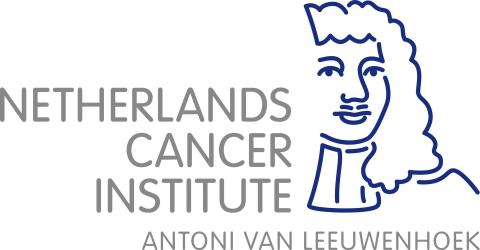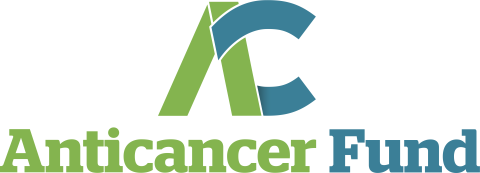Neoadjuvant β-blocker in angiosarcoma patients
Neoadjuvant trial on the efficacy of propranolol monotherapy in patients with angiosarcoma (PropAngio).
Funding
Why this trial
Angiosarcoma is an aggressive and rare cancer type with a high risk of spreading (i.e. developing metastases). The standard treatment for localised angiosarcoma is to surgically remove the entire tumour, sometimes combined with radiation. However, despite optimal disease management approximately half of patients relapse.
Although the role of chemotherapy before or after surgery remains controversial for localised disease, neoadjuvant chemotherapy (before surgery) is often administered for locally advanced angiosarcoma. Several chemotherapies have shown activity in the locally advanced and metastatic setting but none have shown a beneficial effect in terms of prolonged survival or time to relapse when used in a neoadjuvant fashion among patients with operable angiosarcoma.
By improving the neoadjuvant treatment of this disease and effectively treating micro-metastases at an early stage, the number of local and distant recurrences might be reduced, potentially leading to higher survival rates. New drugs for the neoadjuvant setting for angiosarcoma are thus urgently needed.
Why this intervention
Propranolol, a β-blocker, has recently been repurposed against a benign vascular tumour called haemangioma with 88% complete or near complete resolution of the treated lesions. Haemangiomas express high levels of β-adrenergic receptors potentially explaining their sensitivity to propranolol. These receptors are reported to be highly expressed in malignant vascular tumours suggesting the effect of propranolol and other β-blockers may extend to aggressive vascular tumours like angiosarcoma as well.
Several case reports have indeed suggested that propranolol could be repurposed to treat angiosarcoma. Patients with locally advanced or metastatic angiosarcoma have been treated with propranolol in combination with various chemotherapies. Also, a reduction in proliferation index and stabilisation of tumour growth of angiosarcoma in response to propranolol monotherapy has been reported in one patient.
Propranolol is an already approved drug with well-known pharmacokinetic properties and toxicity profile, and has been or is being used in more than 20 oncology trials, including one trial in advanced angiosarcoma.
Trial design
This was a single-arm neoadjuvant window of opportunity phase II study to explore the activity of propranolol in angiosarcoma. Propranolol was administered as monotherapy in a dose of 40-80 mg 2-3 times a day, if tolerated. 14 patients with newly diagnosed, recurrent or metastatic angiosarcoma were included.
Results
This trial did not show persuasive anti-tumour activity after treatment with propranolol in angiosarcoma patients – in only 2 out of 14 patients the tumour regressed. Several factors might have affected the result of this trial. First of all, it is unclear whether the total duration of propranolol treatment in this trial was long enough, and whether the total dose of propranolol was sufficient to achieve the wanted effect. Most patients couldn't get to the highest dose because propranolol made their heart rate slow down too much at lower doses already. Furthermore, it remains unclear what exactly made the tumour respond to the treatment in two patients but not in the others.
The full publication can be found here. The trial is registered here.
Partners
Researchers:
- Winan van Houdt, The Netherlands Cancer Institute, Amsterdam, The Netherlands (Coordinating Investigator)
- Neeltje Steeghs, The Netherlands Cancer Institute, Amsterdam, The Netherlands (Principal Investigator)
Sponsor:
- The Netherlands Cancer Institute - Antoni van Leeuwenhoek Hospital (NKI-AVL)
ACF co-funding partners:
- Ockier & Partners Advocaten
- Vansteelandt BV - Plan 3D
Our role
Why we support this trial

Intervention has little or no commercial value

Expected survival benefit
No major hurdle for clinical implementation

Benefits a population with high unmet needs
Funding
Questions about this trial?
References
More info: NL71090.031.19
Léauté-Labrèze C, Hoeger P, Mazereeuw-Hautier J, Guibaud L, Baselga E, Posiunas G, et al. A Randomized, Controlled Trial of Oral Propranolol in Infantile Hemangioma. N Engl J Med [Internet]. 2015 [cited 2018 Nov 6];372:735–46. Available from: http://www.nejm.org/doi/10.1056/NEJMoa1404710
Léauté-Labrèze C, de la Roque ED, Hubiche T, Boralevi F, Thambo J-B, Taïeb A. Propranolol for Severe Hemangiomas of Infancy. N Engl J Med [Internet]. 2008 [cited 2018 Mar 28];358:2649–51. Available from: http://www.ncbi.nlm.nih.gov/pubmed/18550886
Daguzé J, Saint-Jean M, Peuvrel L, Cassagnau E, Quéreux G, Khammari A, et al. Visceral metastatic angiosarcoma treated effectively with oral cyclophosphamide combined with propranolol. JAAD Case Reports [Internet]. 2016 [cited 2018 Nov 6];2:497–9. Available from: https://linkinghub.elsevier.com/retrieve/pii/S2352512616301230
Pasquier E, André N, Street J, Chougule A, Rekhi B, Ghosh J, et al. Effective Management of Advanced Angiosarcoma by the Synergistic Combination of Propranolol and Vinblastine-based Metronomic Chemotherapy: A Bench to Bedside Study. EBioMedicine [Internet]. 2016 [cited 2018 Nov 6];6:87–95. Available from: https://linkinghub.elsevier.com/retrieve/pii/S2352396416300652
Chow W, Amaya CN, Rains S, Chow M, Dickerson EB, Bryan BA. Growth Attenuation of Cutaneous Angiosarcoma With Propranolol-Mediated β-Blockade. JAMA dermatology [Internet]. 2015 [cited 2018 Mar 28];151:1226–9. Available from: http://archderm.jamanetwork.com/article.aspx?doi=10.1001/jamadermatol.2015.2554
Heinhuis KM, IJzerman NS, Koenen AM, et al. PropAngio study protocol: a neoadjuvant trial on the efficacy of propranolol monotherapy in cutaneous angiosarcoma—a proof of principle study. BMJ Open 2020;10:e039449. doi:10.1136/bmjopen-2020-039449
https://bmjopen.bmj.com/content/10/9/e039449
Author: Kristine Beckers (Trial Manager)
Last updated: September 2024


